Berlin museum tours inspire Mid-East refugees
- Published
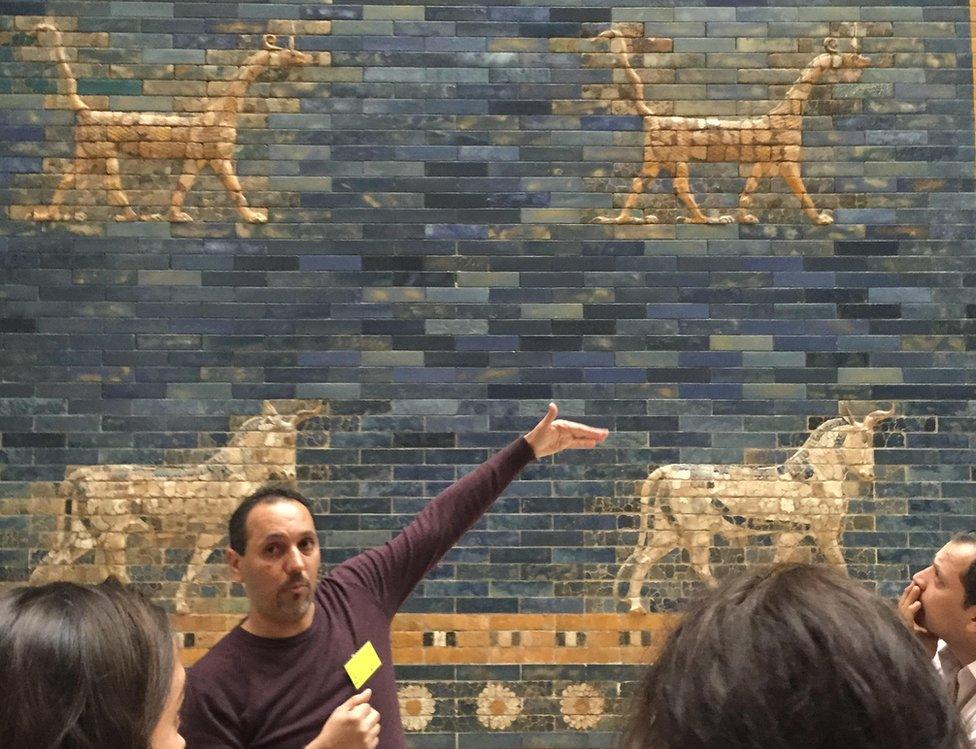
Bashar, from Syria, shows visitors to Berlin's Pergamon Museum the ancient Ishtar Gate, which originally came from Iraq
Museum visitors gaze awe-struck at an ornate azure blue arch. As tall as an office block, the Ishtar Gate is more than 2,500 years old, and was once one of the entrances to the ancient city of Babylon, in modern-day Iraq.
Today the enormous arch is in Berlin's Pergamon Museum.
For these visitors it is not only an impressive sight, but also a moving one. That is because they are refugees, and the gate is a reminder of home. Many of them are from Iraq. The rest are from Syria.
The tours take in many of the ancient precious objects of the Middle East - today in Germany - and are organised by a group of Berlin state museums twice a week, free of charge, especially for refugees.
But what is really unusual about this tour is that the guide, Bashar, is also a refugee.
Bashar fled from Syria and has been in Germany for six months. He spent 20 years working in museums in Syria, specialising in antiquities. He is now one of 17 asylum seekers being trained here by Berlin's state museums to work as guides.
They are paid the standard museum guide fee of €40 (£32; $46) per hour-long tour. The project aims to help them integrate into German society by easing them back into work and restoring a sense of self-worth.
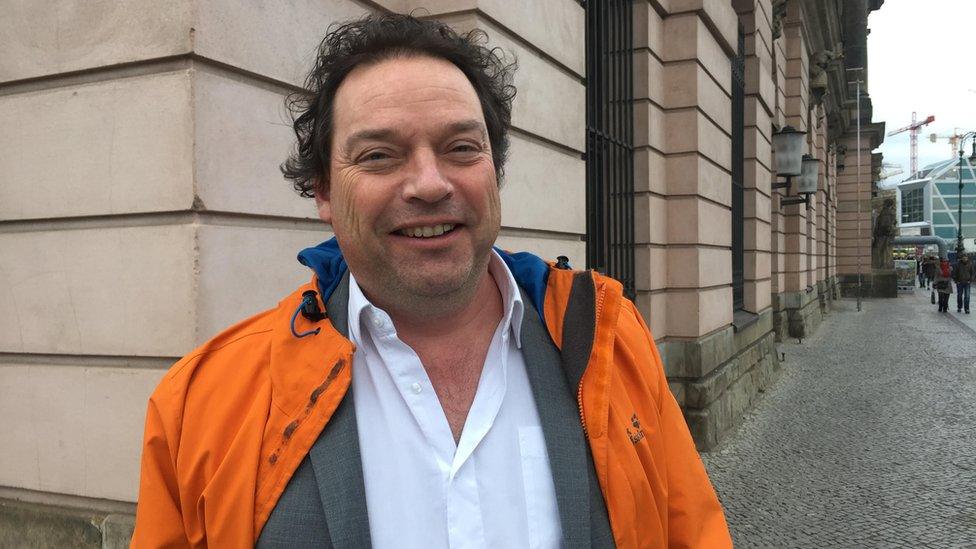
Tracing the post-war reconstruction of Berlin is a "kind of eye-opener" for refugee visitors, says Prof Stefan Weber of the Museum for Islamic Art
"I would like to pass the idea on to refugees that we should respect the country which has opened the door for us to come, and that we should also be proud of our cultures," Bashar told me.
"When German people give me the chance to be active and practise what I did over the last 20 years, it's not only a chance for me, but it also shows other refugees that you will find very good people who will support you and will give you the opportunity to integrate and start a better life. For me this job in the Pergamon Museum is like a gift."
Many of the participants on the tour are still living in provisional refugee shelters, often sleeping on camp beds in former sports halls.
They are in a state of limbo, waiting for their asylum applications to be processed so they can start looking for work. In the meantime, projects like this give refugees access to cultural pastimes.
Post-war recovery
But it is also about fostering integration by enabling refugees to get to know the history of their new home.
Many knew little about Germany before they came. But at Berlin's German Historical Museum they can learn all about Germany's past.
And the project's organisers are surprised at what refugees are interested in. Pictures and video footage of post-war Germany in ruins prove particularly fascinating, says Prof Stefan Weber, director of the Museum for Islamic Art in Berlin, and the project's initiator. How Germany has rebuilt its cities and economy since World War Two shows that a country can recover after war.
"The destruction of Germany is for many refugees very important, because they see the country like it was in 1945. It gives them hope that destruction in war is not the end of history. For many it's a kind of eye-opener and it gives them hope for the future of their countries."
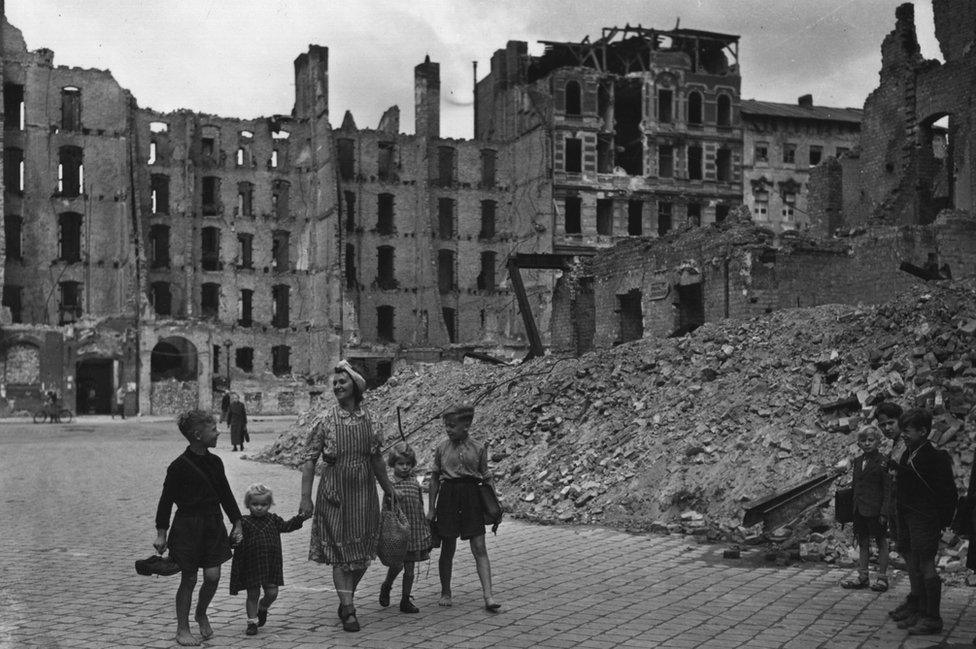
Devastated Berlin in 1945: Syrian refugees see a parallel with their war-ravaged country
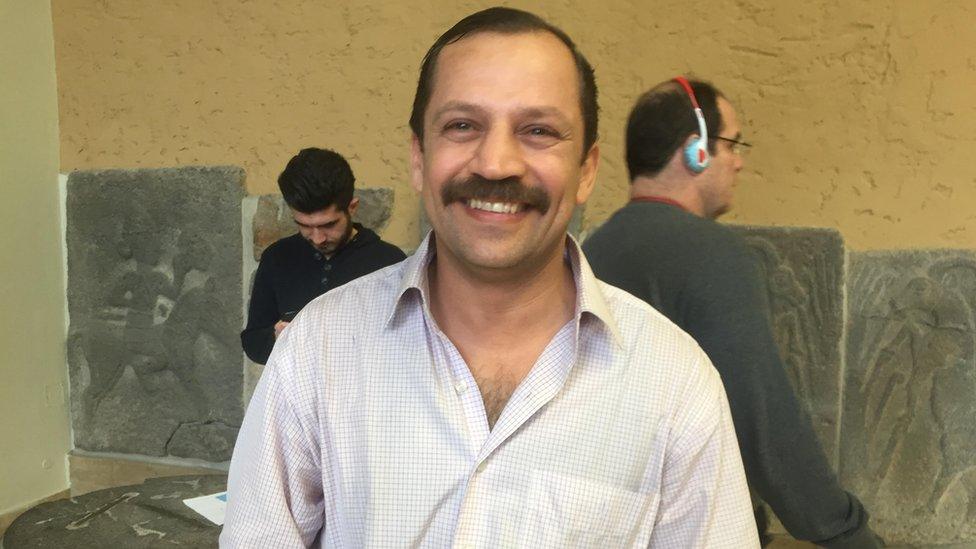
Rassan, from Iraq, says he is glad to be able to see ancient artefacts from his homeland
Rassan is one of the participants on the tour. He fled Iraq a few months ago, where he had studied English literature and worked for Iraq's Ministry of Defence.
He crossed the Mediterranean from Turkey to Greece in a crowded inflatable rubber boat. He then spent two weeks working his way up the Balkans to Germany. Today he is living in refugee accommodation in a former supermarket in Berlin.
I ask him whether he feels uncomfortable seeing these precious objects taken from his homeland, now here in northern Europe. In the past the Iraqi government has called on Germany to return the Ishtar Gate.
"I am very happy to see the Arab civilisation here," says Rassan. "They take care of everything and it's not even their civilisation. Isn't that something beautiful? It's like a rebirth. The whole world can view the Arab civilisation here and see where it comes from. I can remember my country here through its civilisation."
Bashar agrees, particularly given the partial destruction of Palmyra by so-called Islamic State militants.
"After what happened with Islamic State, it's good these objects are here. While we have crisis and war we will have illegal excavations. For us these objects are a message that we are continuing our journey, our culture, our heritage."
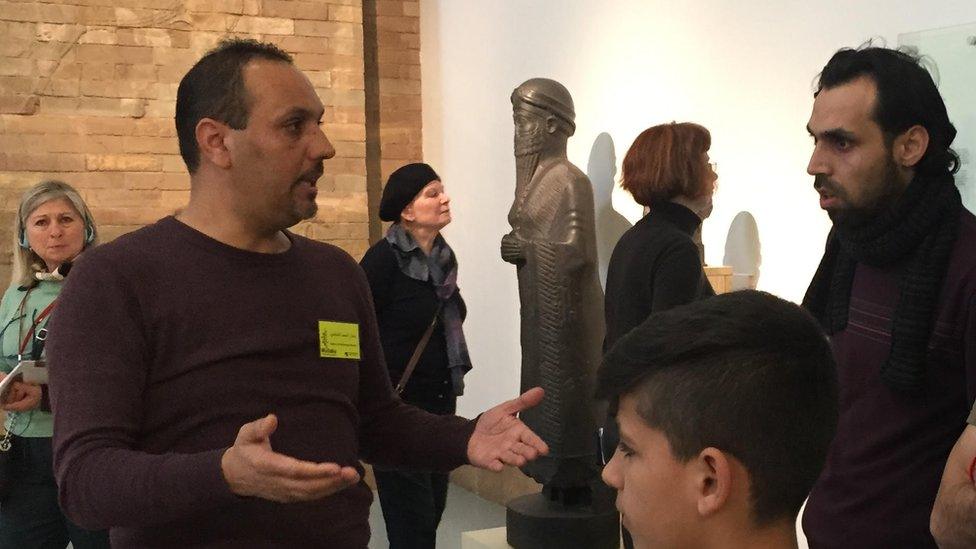
Bashar is happy that these antiquities at least escaped the vandalism of Islamic State